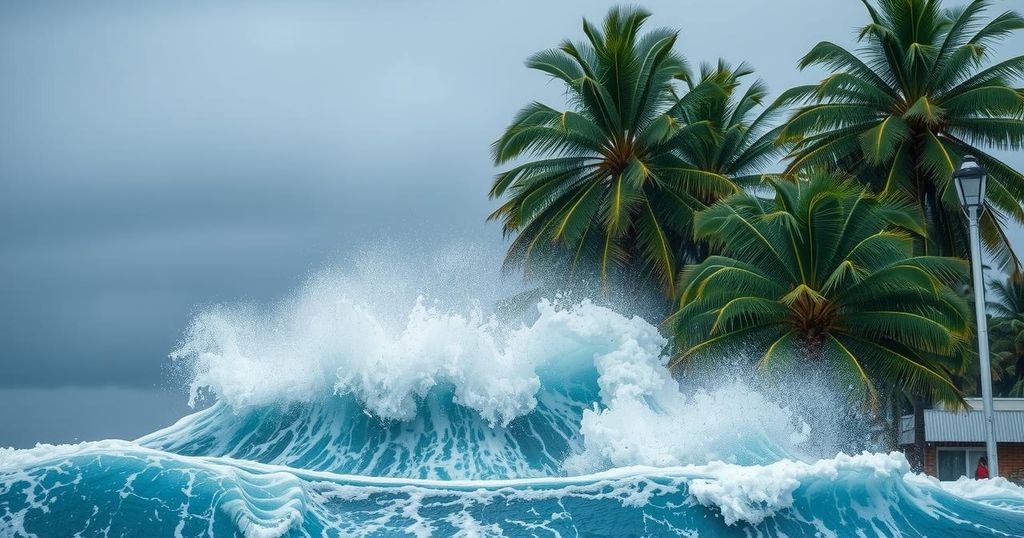Tropical Cyclone Chido has caused extensive damage to Mayotte and is headed towards Mozambique, affecting millions. Strong winds have led to significant structural destruction and the mobilization of emergency services. Nearby Comoros Islands also face severe impacts as the cyclone approaches, with concerns for missing fishermen.
The French territory of Mayotte in the Indian Ocean recently experienced severe devastation due to Tropical Cyclone Chido, with sustained winds exceeding 220 kilometers per hour reported by the French weather service. The cyclone wreaked havoc on the islands, tearing off metal roofs and leaving numerous homes damaged. Mayotte Prefect Francois-Xavier Bieuville characterized the cyclone as the most violent to impact the region since 1934, expressing concerns for the residents who have suffered substantial losses.
In response to the devastation, emergency services have been mobilized, with French Interior Minister Bruno Retailleau confirming extensive damages and the redistribution of resources. Thousands of residents currently face power outages, and significant structural destruction has been reported. Bieuville emphasized that a red alert remains in effect for the general population, urging individuals to stay in solid shelters while emergency responders conduct recovery efforts.
The cyclone not only affected Mayotte but also neighboring Comoros Islands, where authorities have raised high alerts and closed key transportation hubs. Concerns have been raised for several fishermen missing since Monday, as Comoros grapples with the lingering effects of Chido.
As Chido continues its path toward the African mainland, specifically Mozambique, forecasters warn that the impact could pose significant threats to over 2.5 million individuals in the expected affected regions. The cyclone season from December to March has traditionally been perilous in southeastern Africa, with recent years witnessing the catastrophic aftermath of cyclones Idai and Freddy.
The phenomenon of increasingly violent cyclones is attributed to climate change, posing substantial challenges for vulnerable nations in southern Africa that contribute minimally to global emissions. The repercussions extend beyond immediate physical destruction; subsequent flooding may trigger outbreaks of waterborne diseases, compounding the humanitarian crisis.
Tropical Cyclones are powerful storms that form over warm ocean waters and can cause severe damage upon landfall. The season from December to March is particularly active for such cyclones in the southeastern Indian Ocean, where countries like Mozambique, Malawi, and Zimbabwe are frequently affected. These regions have seen an increase in cyclonic activity and severity, leading to increased casualties and extensive property damage. Climatic studies suggest that human-induced climate change has exacerbated the intensity of these storms, affecting vulnerable communities that bear little responsibility for emissions. In the past, cyclones have resulted in devastating humanitarian crises, emphasizing the need for effective disaster preparedness and response strategies.
The devastation caused by Tropical Cyclone Chido in Mayotte serves as a potent reminder of the increasing severity and frequency of cyclones due to climate change. As nations brace for its impact on the African mainland, particularly Mozambique and nearby regions, the potential for humanitarian crises exacerbated by subsequent disease outbreaks highlights the vulnerabilities of populations that contribute minimally to climate change. Coordinated emergency responses and effective disaster management are essential to mitigate the impacts on affected communities, as the threat of future cyclones looms large.
Original Source: www.voanews.com






